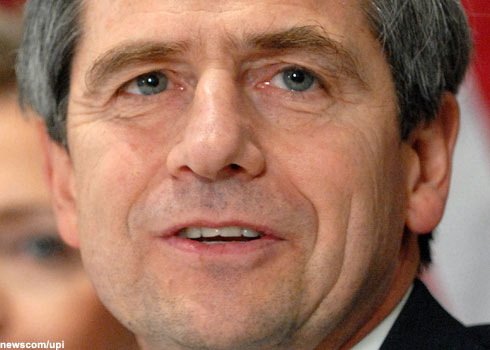On May 8th–long before Rep. Joe Sestak (D-PA) made his primary challenge to Sen. Arlen Specter (D-PA) official–I wrote that “as long as Sestak’s running, or threatening to run, both men will feel the incentive to move left. That’s good news for progressives on its own, and even better if the brinksmanship results in a sort of political positive feedback loop, where each candidate does his best to prove himself more liberal than the other.”
Soon after that–in his first weeks as a Democrat after nearly 30 Republican years–Specter began taking baby steps to the left. But as time has gone on, the extent to which the two men have indeed attempted to outdo each other by taking more and more progressive stances has become fairly comical.
In June, Specter began to appease labor leaders, after first vowing to oppose the Employee Free Choice Act. He ultimately helped broker a reported compromise on the bill.
The same month, he came around on the public option, announcing his support for a government insurance plan that would compete with private insurers. And just yesterday, he took it a step further, opining in favor of a “robust public option.”
As a reward for this sea change, he’s maintained the support of the entire Democratic establishment, including President Obama, and Vice President Biden, both of whom he praises frequently and effusively in public statements and on Twitter.
Without that sort of institutional support, Sestak has settled in to the role of the outsider, who leads the way for party men like Specter to follow. He launched a petition demanding an up-or-down vote on the public option in both chambers of Congress, and has urged the Senate (cough, Specter, cough), limping behind the House, to pass far-reaching climate change legislation. (When I asked Sestak about the public option months ago, he had not yet decided his position on the issue. In August, he announced he’d have a hard time voting for a health care bill without a public option.)
There’s no mistaking the pattern here, which hasn’t gone unnoticed by grassroots Democrats who see in primary challenges the opportunity to move conservative members of the party closer to the mainstream.










